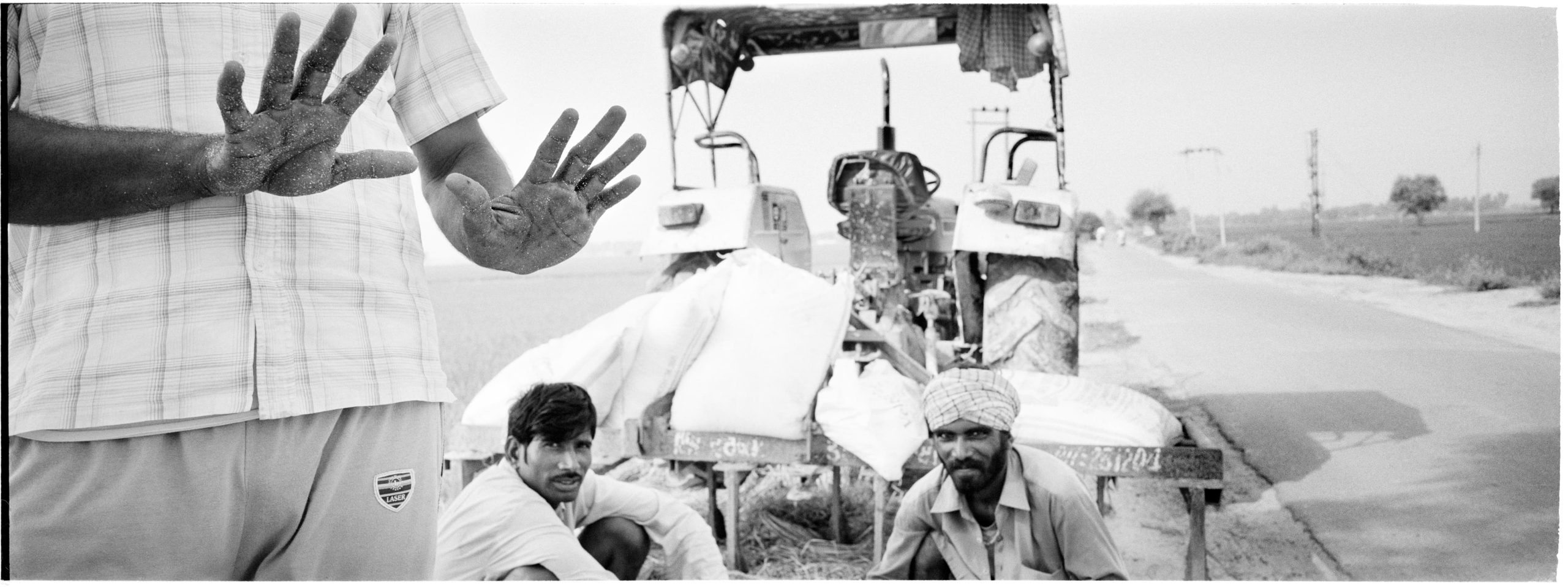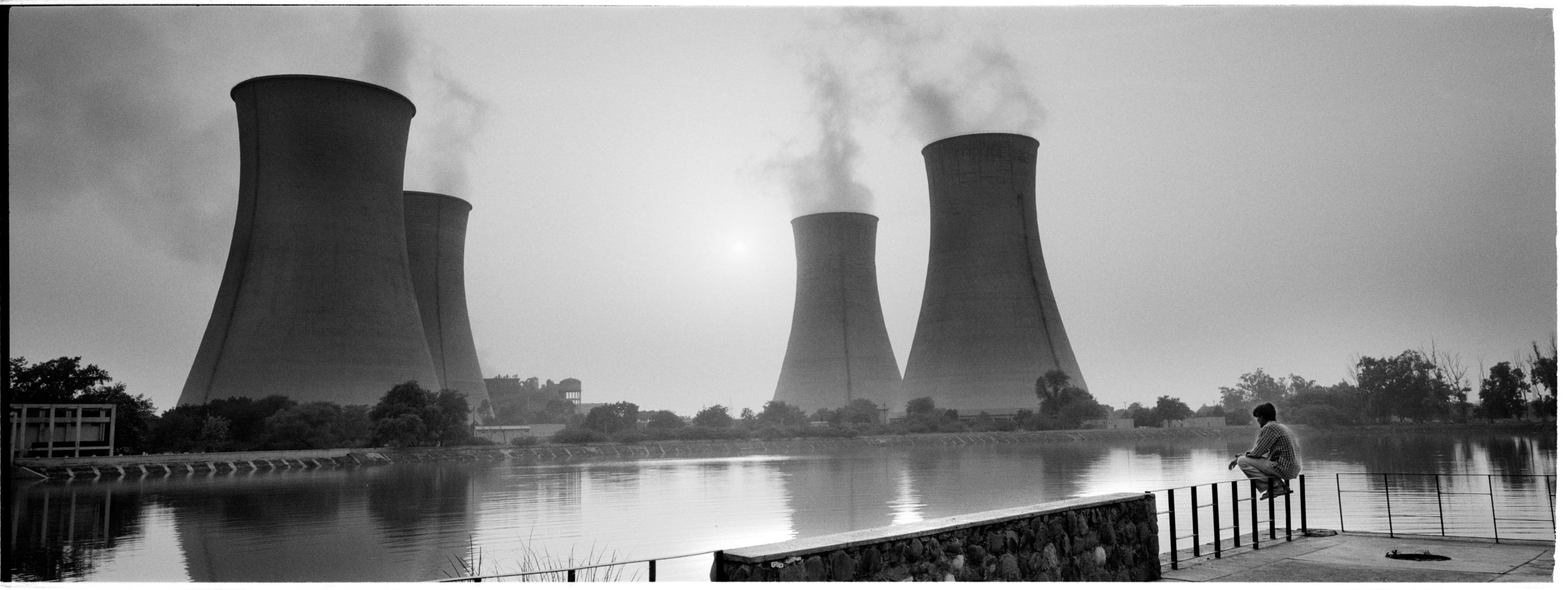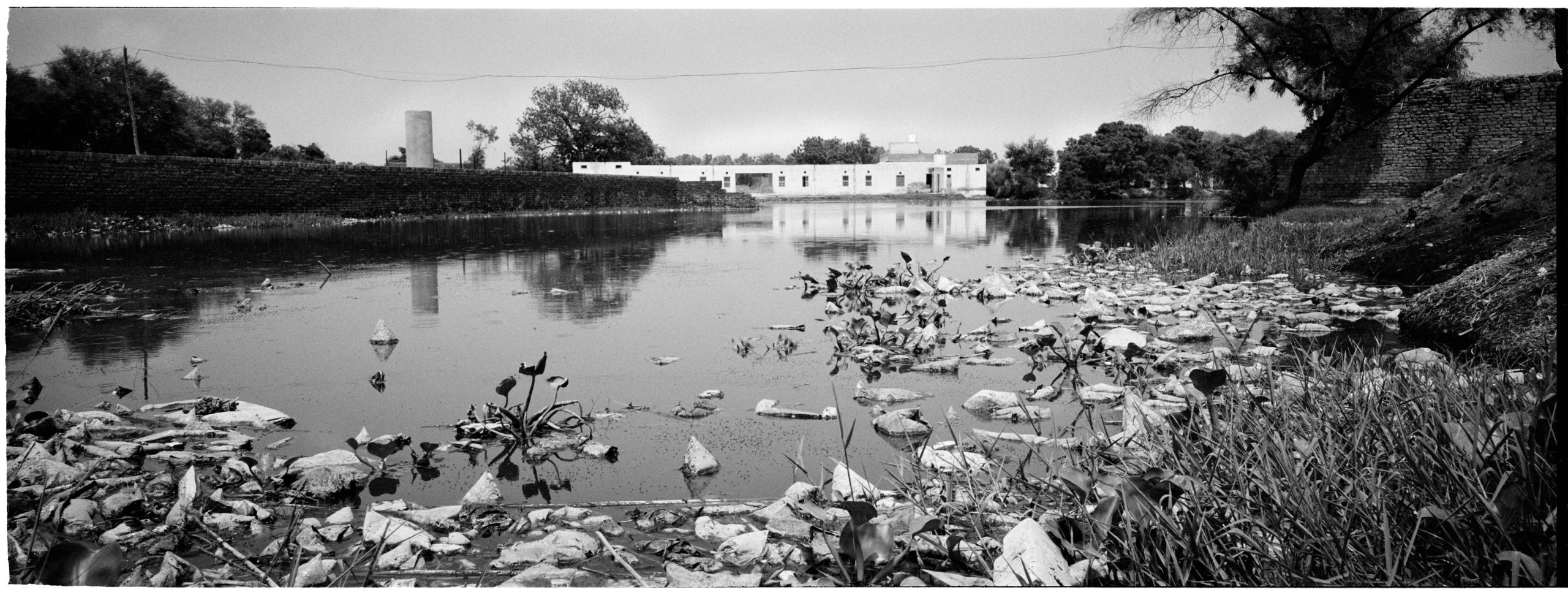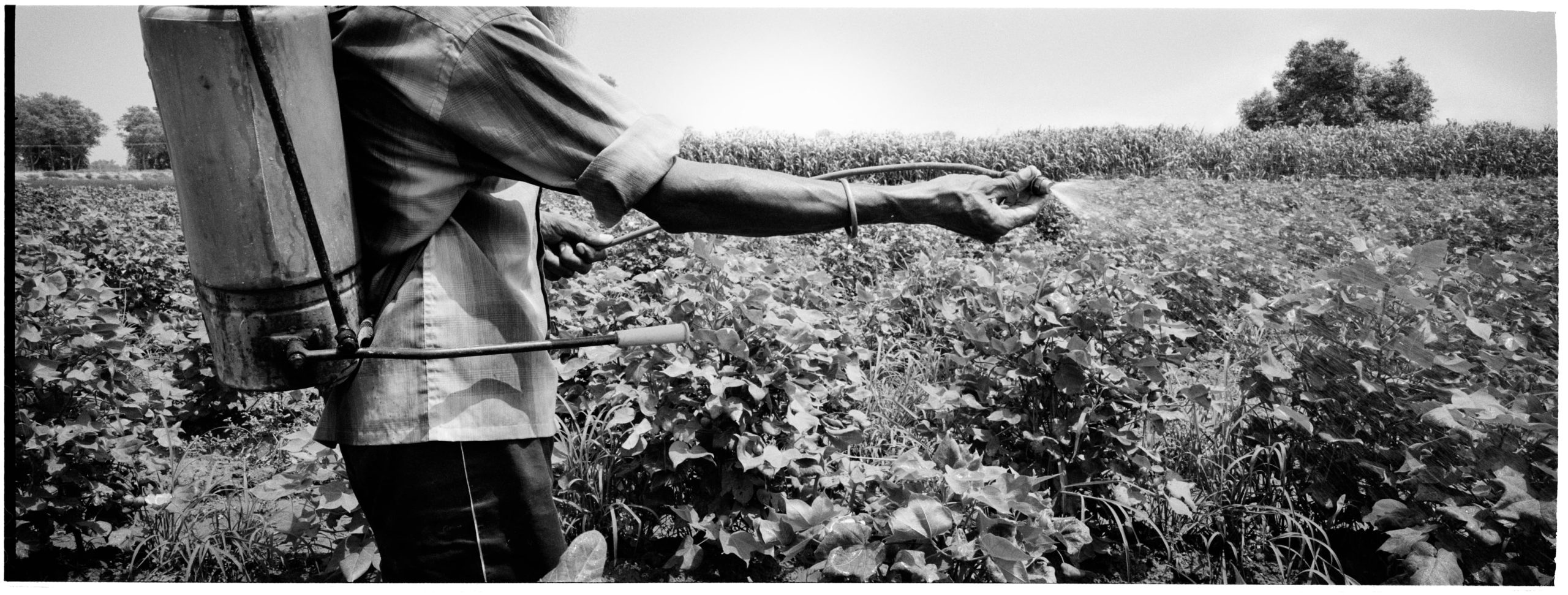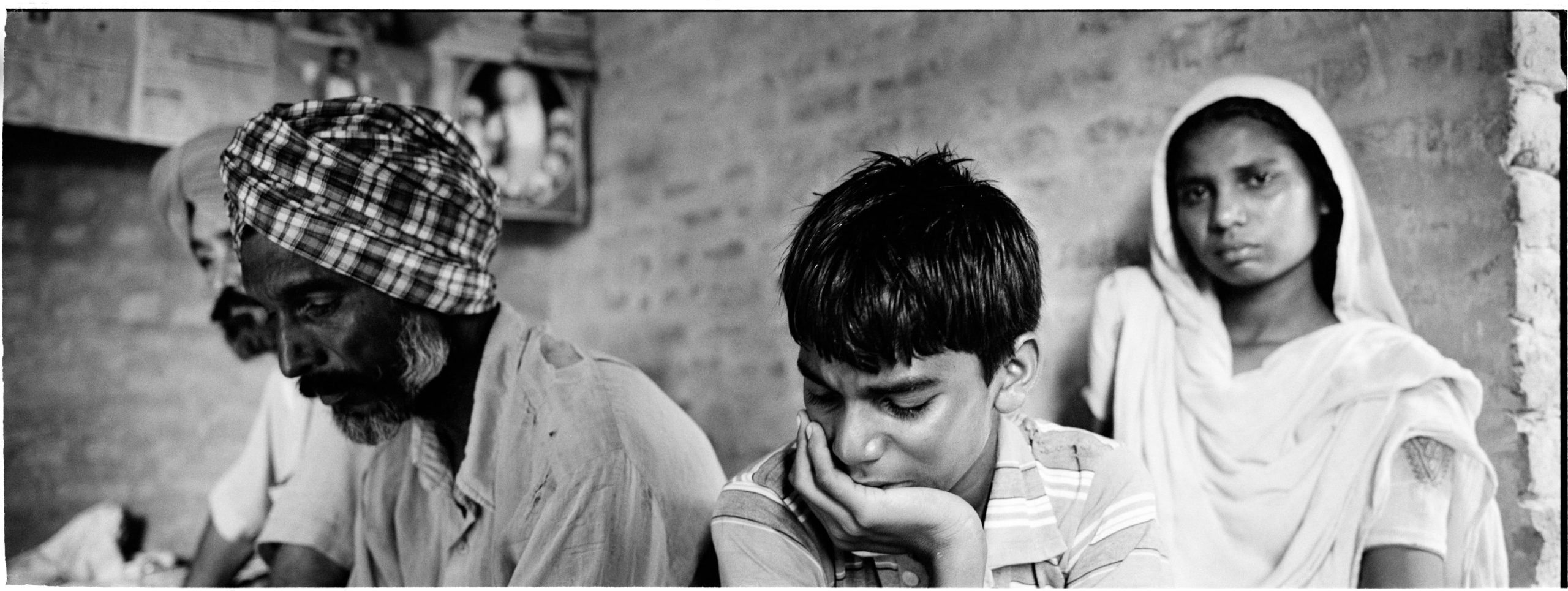SUICIDE AND
PESTICIDE – CRISIS
IN THE PUNJAB
PUNJAB, a state in Northwestern India with a population of almost 30 million, has, over the last 45 years, gone through an agricultural transformation. Although investors and large corporations who profit from India’s agricultural modernisation largely accredit India’s newfound self-sufficiency with the upsurge in agricultural output resulting from its “Green Revolution”, Indian farmers and their families have been left with a legacy of environmental degradation, water shortages, and unsustainable predatory loans that have resulted in parallel epidemics of suicide and cancer.


Since the mid-1960s, state agricultural policy, with the help of international industry and NGO involvement, has made the modernisation of Punjab’s farming methods a top priority. Much praise has been awarded to those involved in the transformation – Punjab went from a self-sustaining and relatively ancient farming area, to becoming India’s breadbasket and is credited with helping to halt the famine that India was suffering, in various degrees, for the 20 years preceding.
However, the complex problems associated with the implementation of this policy have been ignored to such an extent, that water tables have sunk drastically, becoming salinized and polluted, whilst the region’s soil has been gravely depleted. Punjabis have been hit by the dual blows of pesticide pollution and the financial strains of mismanaged and often highly currupt lending systems, both which have led to a many-fold increase in terminal diseases and suicide rates.
Various stakeholders have profited enormously at the expense of the region- companies such as Monsanto have cashed in on the sale of GMO seeds and their associated pesticides and fertilisers whilst the makers of heavy machinery such as John Deere, have had whole new markets open up in short order.
Industry groups, often in partnership with government and NGOs have done little to ensure that the modernisation they pushed for came along with regulation, training, waste management, and a sound financial sector free of the endemic corruption, an unfortunate mainstay of India’s political and social systems. In fact, reckless sales of their products have led to massive overuse and unsafe handling of toxic chemicals and unsustainable debt loads on unsuspecting, often illiterate families.
For more information, please visit
http://livingheritage.org/green-revolution.htm and http://www.khetivirasatmission.org/







